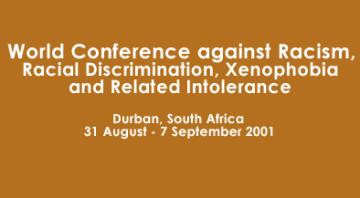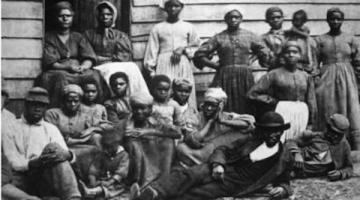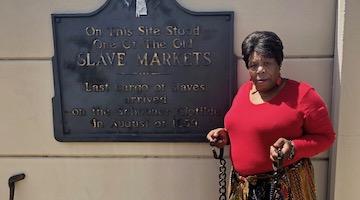by Dr. Jahi Issa, Reggie A. Mabry, Patrick Delices
The authors elaborate on their contention that activists have bungled the legal battle for reparations. They are willing to debate N’Cobra, December 12th Movement, Dr. Ron Daniels, Assemblyman Charles Barron, Dr. Claude Anderson, Randall Robinson, Ta Nehisi Coates and others.
“Reparations is Dead” Authors Seek to Spark Public Discussion of New Legal Strategy
by Dr. Jahi Issa, Reggie A. Mabry, Patrick Delices
“We disagree with Mr. Howard’s assertion that our arguments are not novel.”
In a rebuttal to the article “Reparations is Dead: How to Resurrect it” as reported by the Black Agenda Report, Kamm Howard, of the legislative commission of the National Coalition of Blacks for Reparations in America (NCOBRA), said the following: “Slavery was never legal under international norms.” Howard further stated that “only a small number of nations in Europe colluded together and created some rules among themselves on how to engage in these international crimes. Those were rules amongst criminals.”
What Howard said above (in a Black Agenda Radio segment) is false as it reflects a narrative that is purely conjecture and a history that is revisionist. His postulation is easily debunked as one explores the early roots of modern slavery -- starting with the Byzantine Empire from the 5th century AD until it fell to the Ottoman Turks in 1453.There is no doubt that the Byzantine Empire was a slave empire. In Arabia, before Prophet Muhammad ibn ʿAbdullāh (PBUH), Abyssinian (Ethopian) slaves were showing up in in pre-Islamic Hajazi society. In his book, The Red Sea from Byzantium to the Caliphate, Timothy Power states, "Morever, Ethiopian Slaves were well integrated into pre-Islamic Hijazi society, and the mother of "Amr Ibn Al-'As was reported to have been one such slave.” Also the famed Umme Aymen, also known as Barakah, was an Abyssinian slave who cared for the Prophet (PBUH). Following the wars as illustrated in the Arab revolution and the wars against the Byzantine, slavery was a major part of the Arab conquest of Africa and Europe. Certainly, slaves were present in Al Andalus. All of this was a factor in the re-emergence of Europe through the reconquest of the Iberian Peninsula. As Europe moved back to a position of power, the economy of Spain and Portugal grew as slavery was a part of that economic and socio-political narrative. Dum Diversas, a papal bull issued on 18 June 1452 by Pope Nicholas V, authorized Afonso V of Portugal to conquer the Saracens and pagans and consign them to “perpetual servitude” -- thus, validating the slave system as legal, not only in their eyes, but also in the eyes of their god. Slavery was also part of the story regarding Al Mansur attacking Timbuktu with cannons as Queen Elizabeth provided aid to him given their pact to take control of the New World from the Portuguese.
“Slavery was a major part of the Arab conquest of Africa and Europe.”
Howard’s statement is not grounded in historical facts and fundamentally lacks a scholarly study of the emergence of slavery and how nations engage in that process. The early European nations were following the legal edicts of the Catholic Church and this was God’s Law. Patrick Delices, former adjunct professor at Hunter College and a co-author of “Reparations is Dead,” who is also a chief researcher of the slave trade and slavery in the Caribbean, states: “It is badly mistaken in terms of economics, politics, and culture, that only a few European nations colluded in the slave trade and in participating / benefitting from the slave trade and slavery; as a matter of fact, the opposite is true, very few if any did not.” Delices further states: “the Europeans did not simply make rules, they established laws internationally and otherwise regarding the slave trade and slavery.”
Equally problematic is Howard’s statement that Dr. Issa and Mr. Mabry are not concerned with international strategies. Howard must not be aware of Judge Story’s 1819 jury demands to juries deciding human trafficking and piracy and crimes against humanity after the 1807 law. The 1807 law and the 1819 law were about the internationalism of the Traffic. It is here where the authors’ research makes their point that the Traffic was international and inhuman. In addition, U.S. American states, corporations and private citizens broke the federal law and imported millions of Africans to the U.S. Issa, Mabry and Delices agree that their strategy must first challenge the United States on the matter that the federal Law was violated by conspirators, and if one goes to international bodies it is only after this point is well settled.
Howard’s type of ahistorical rebuttal makes our point that reparations strategies be best left to experts in the field that can make better plausible historical and legal arguments.
“Previous reparation movements have not strategically separated slavery from Human Trafficking.”
The United States has two very interesting federal laws on its books, particularly The Trafficking Victims Protection Act (TVPA) of 2000 codified as 18 U.S. Code § 1595 -- Civil remedy and the 18 U.S. Code § 1582 for slave trade that may be modified for tolling and vessels as well as fraud upon the court, heinous crimes, continuing-violations doctrine. We disagree with Mr. Howard’s assertion that our arguments are not novel. Previous reparation movements have not strategically separated slavery from Human Trafficking. Nor have they brought up the fact that those Africans illegally brought into the United States after 1807 are still African Nationals taken from Kingdoms and city states that are now a part of the African Union and the United Nations.
Furthermore, in January of 2017, the Herero people of Namibia filed a reparations suit in Federal court in the United States. This suit is against Germany for crimes against humanity that happened more than 100 years ago in Africa. If we are going to be serious about future reparations suits and remedies for those illegally trafficked to the United States, we cannot repeat the mistakes of the past and must move forward with voracity.
To this end, we are calling for a Town Hall Meeting to have a professional, academic and intellectual dialogue on the State of the Reparations Movement. We are willing to debate N’Cobra, December 12th Movement, Dr. Ron Daniels, Assemblyman Charles Barron, Dr. Claud Anderson, Randall Robinson, Ta Nehisi Coates and others who may feel that our new arguments are not grounded with sound scholarship.
Jahi Issa holds a Ph.D. in United States and African Diasporic History from Howard University. He is a former assistant professor of History and Africana Studies at several U.S. based universities.
http://www.drjahiissa.com/welcome
Reggie Mabry holds a Computer Science degree from City College with a minor in Africana Studies.



















